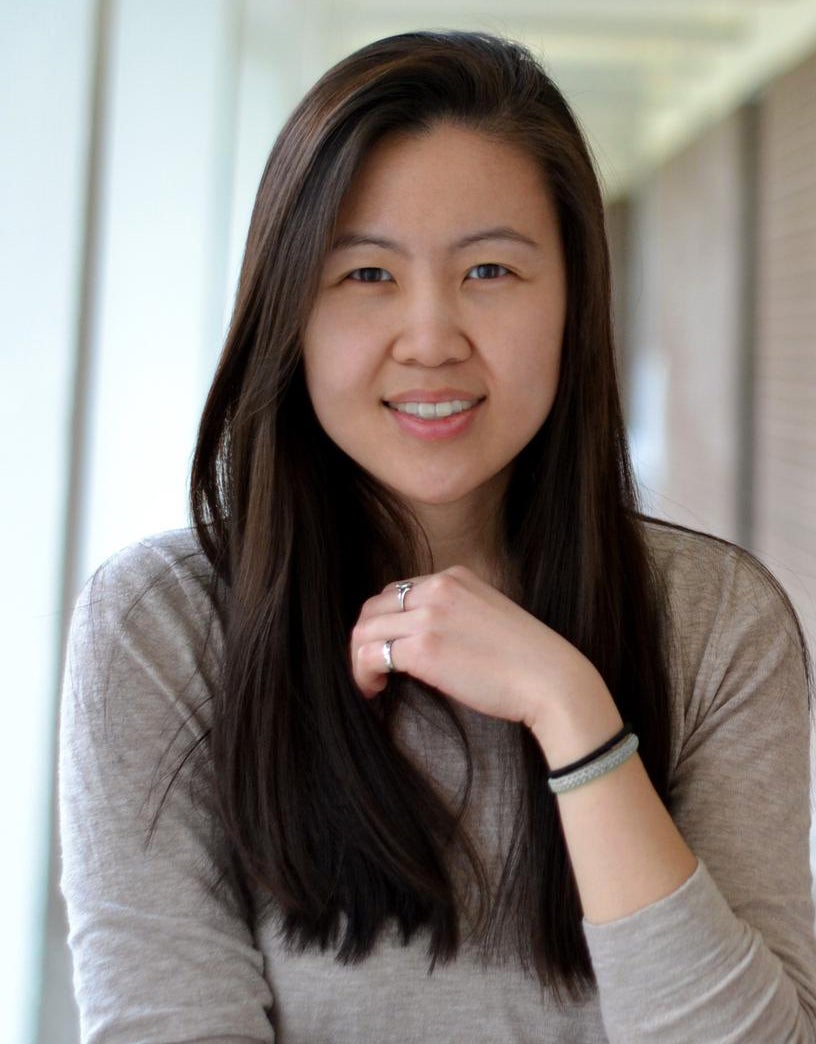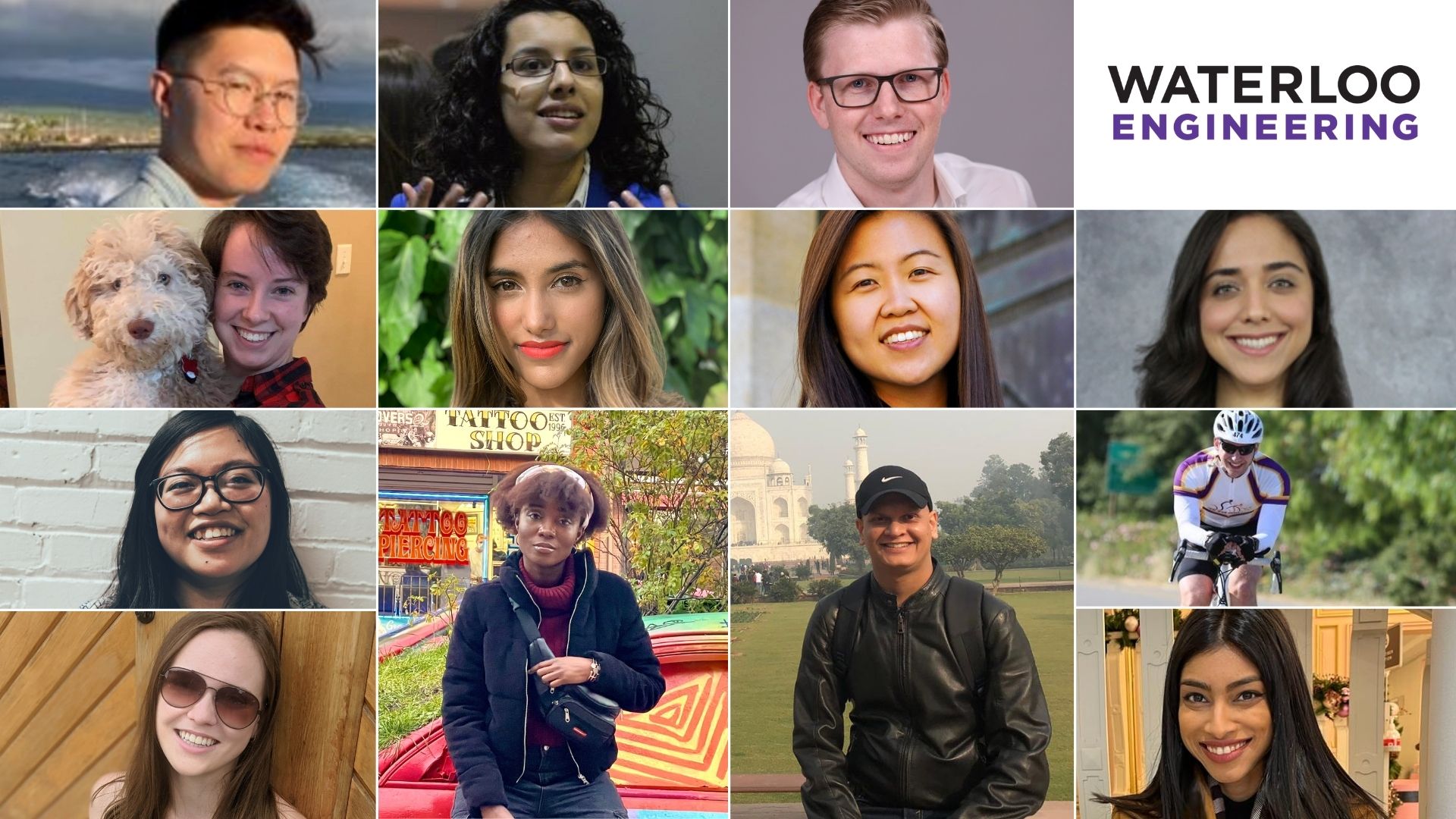
Engaging recent grads
New council builds community for alumni from the last decade

New council builds community for alumni from the last decade
By Stuart Solway Faculty of EngineeringThe Recent Engineering Alumni Council (REAC) was established in Fall 2021 to support the nearly 13,000 Waterloo Engineering recent graduates and current students in building a strong community and culture of connection.
Alumnus Michelle Liu (BASc ’18 and MASc ’20, civil engineering), the inaugural chair of REAC, was asked about her involvement in the council, the great work it is doing, and how she sees it evolving in the future.
As a queer and racialized woman, I wanted to leverage REAC’s leadership position to champion equity, diversity, and inclusion considerations within engineering spaces.
I noticed that prior to the REAC, there had never been a Waterloo Engineering alumni group that focused on graduates from the last decade even though they make up the largest percentage of the alumni community. It’s important to me to make sure we have opportunities and perks that reflect our needs and interests that are different from earlier graduates.
My tasks range from providing high-level direction for the council to preparing agendas, running icebreakers and chairing meetings. It is a versatile role in which I get to influence the kind of impact the council has while keeping my feet on the ground with hands-on tasks.
The Faculty of Engineering created REAC to make sure it provides resources to recent graduates to grow personally and professionally, support the growth of their network, and provide value in staying connected to Waterloo Engineering. Having alumni lead the programming was important to ensure that peer-to-peer connection was its cornerstone.
growth of their network, and provide value in staying connected to Waterloo Engineering. Having alumni lead the programming was important to ensure that peer-to-peer connection was its cornerstone.
The first year of REAC was 2021-2022 so it is still a work in progress. We started off concentrating on four key areas: events, giving back, lifelong learning and marketing. Next year, we plan to transform lifelong learning into a mindset that is entrenched in all the work we do.
Michelle Liu (BASc ’18 and MASc ’20, civil engineering), chair of REAC
Our programming is specifically designed for our recent alumni to help them connect with each other. The events' group plans to continue hosting book clubs, happy hours, career panels and financial planning workshops for engineering grads. The giving back group focuses on volunteerism, philanthropic education, mentorship and supporting alumni through career transitions. Marketing oversees communications to graduating students and recent alumni about the opportunities available through REAC.
The first and foremost perk is the network of fellow alumni. There are also perks like professional development, insurance, activity discounts for grads, continued library access and career services offered through the central alumni office. We are here to make sure that our alumni are aware of the perks, understand that they can be part of an amazing network, meet people, and volunteer if they are able.
Right now, primarily through emails. This is a bit of a challenge because many recent graduates stop checking their Waterloo emails when they leave school and start working. We are expanding our reach on social media such as Instagram and LinkedIn.
Down the road, we might house a blog where graduates talk about their experiences rather than simply passing along technical engineering content. We are also focusing efforts on graduating students by inviting them to join our alumni network before they start their final exams.
Launching REAC was the first point of support by the Faculty. Stephanie Smith, a development officer with Waterloo Engineering, was the fuel and driver of the council. REAC's website is hosted by the Faculty which also helps with reaching out to alumni and students. At least one Waterloo Engineering staff member attends all meetings, and the Faculty provides us with helpful data such as the demographics of our alumni as well as results from alumni surveys.
Working closely with the Faculty also gives us the power to influence other matters. For one thing, I would like to encourage the Faculty to have a section on its website that talks about the accomplishments of recent alumni.

REAC members top row from left: Harvey Tang, Farzi Yusufali and Matthew Legasto-Mulvale; second row from left: Jennifer Cerullo, Alisha Bhanji, Michelle Liu and Yasaman Shahtaheri, third row from left: Adele Chui, Mac-Anne Ntim-Frimpong (big photo), Maninder Bhamra (big photo) and Matt Daley; fourth row from left: Rachel Malevich and Jodi Menezes; not pictured: Kevin Lau.
We are open to any kind of activity because we want to represent all interests. We are not only providing practical resources for our alumni, we are also doing things that are more social, giving people the chance to meet their classmates, network and have fun. Going forward, we plan to have a mix of in-person and remote activities to ensure that we are meeting our alumni in person while being inclusive of our global alumni network.
I see it becoming as ubiquitous as the broader engineering and university alumni groups. We could have a dedicated full-time staff member, like an advancement or development officer, who supports the needs of the recent alumni community. I also see us using networking tools like Ten Thousand Coffees to encourage conversations between our various members.
Everyone is welcome. Organizations like ours are often perceived to be very cliquey with a group of friends getting together to be active on a council. That is not the case here. None of us on the leadership council knew each other before it was formed. There will be some openings for council positions this summer. Those interested can apply on our website and we are always looking for volunteers to help support our efforts.

Read more
Upside Robotics secures new funding to accelerate the future of sustainable farming

Read more
Redefining capstone learning by bringing students, faculty and community partners together to tackle real-world challenges

Read more
Here are the people and events behind some of this year’s most compelling Waterloo stories
The University of Waterloo acknowledges that much of our work takes place on the traditional territory of the Neutral, Anishinaabeg, and Haudenosaunee peoples. Our main campus is situated on the Haldimand Tract, the land granted to the Six Nations that includes six miles on each side of the Grand River. Our active work toward reconciliation takes place across our campuses through research, learning, teaching, and community building, and is co-ordinated within the Office of Indigenous Relations.